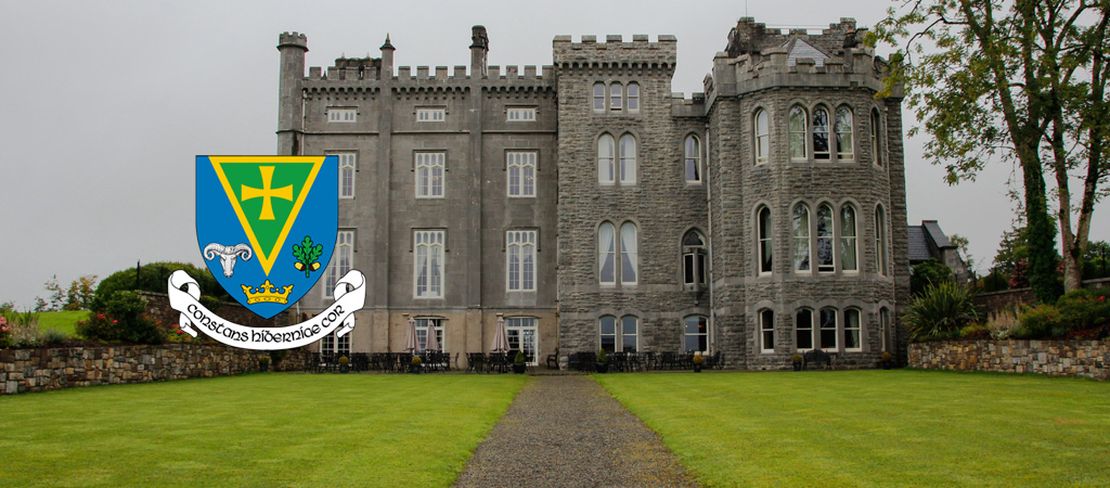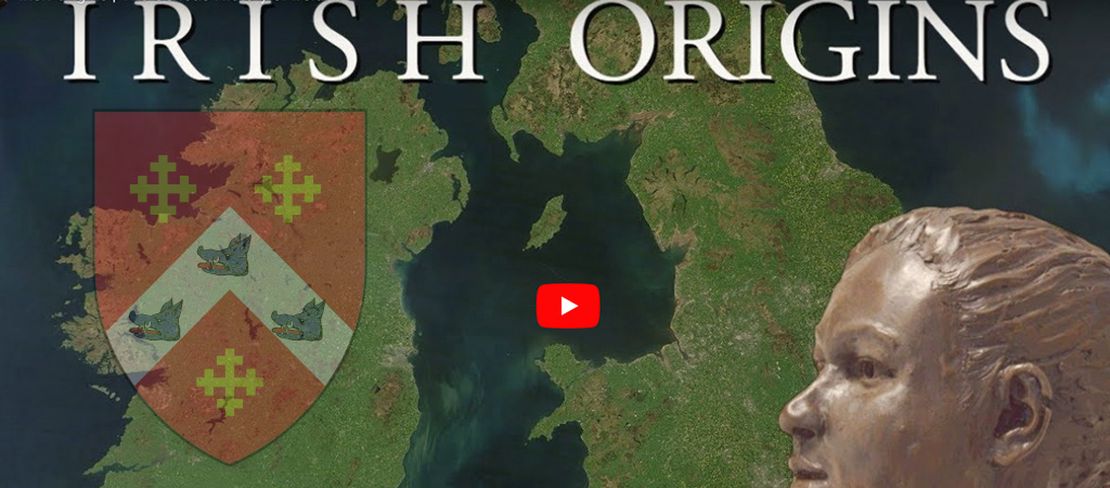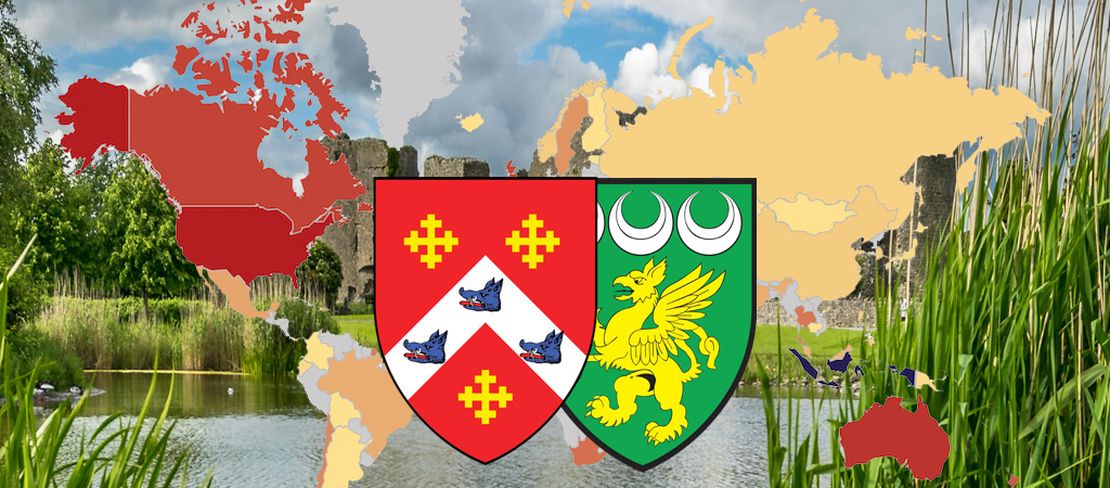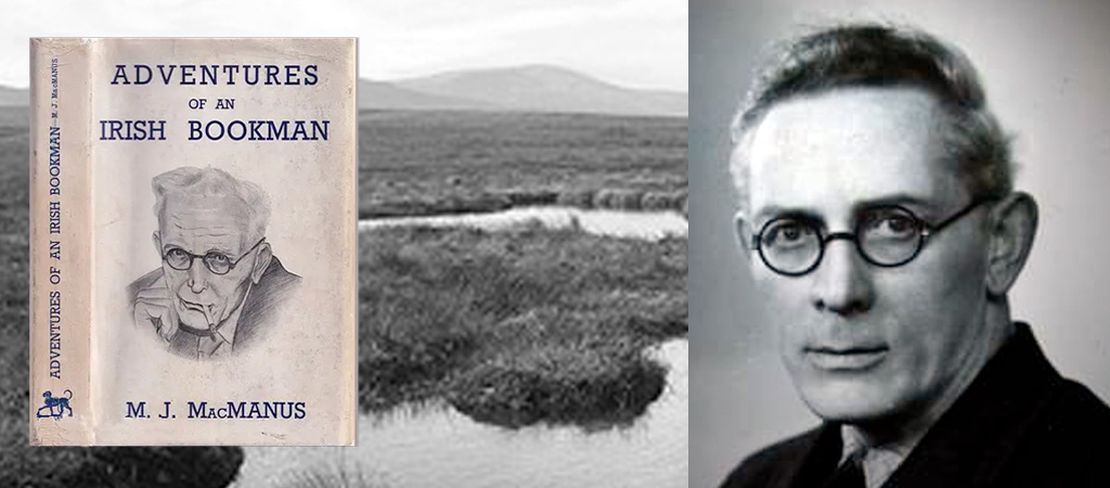
M.J. MacManus Summer School
- Dermot MacNabb
- Ireland
- January 12, 2022
Table of Contents
From Heart and Hand, Journal of The McManus Family History Society. Journal No. # 7.
Eighteen Forty-Nine
- They carved the date above the gate
- ‘Eighteen Forty-Nine’
- When they built the workhouse on the hill
- of limestone tall and fine.
- The people came to drink the soup
- Ladled from greasy bowls
- They died in whitewashed wards that held
- A thousand Irish souls
By MJ McManus.
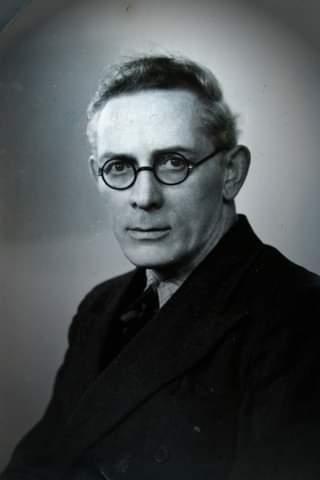
Saturday, 29th. July 1995
On Saturday, 29th. July 1995 Carrick-on-Shannon Historical Society hosted a very successful Summer School dedicated to the memory of the Carrick poet, journalist and literary editor of the Irish Press, Michael Joseph MacManus.
Born in the Workhouse
M.J. MacManus was born in the Workhouse, Carrick-on-Shannon on 10th of February, 1888. Comparisons were drawn between him and fellow poet Padraic Colum from Longford who was also born in one of the institutuions associated in the Irish historical mind with destitution, the Famine and emmigration - the Workhouse. This was one of the many themes referred to by an impressive array of speakers.
The Master of Ceremonies for the one-day event, which was held in the new Community School on Summerhill, was Mr. Billy Gilligan. The School was officially opened by journalist Des Rushe who recounted his first memories of visiting Carrick as a youth from his home in Elphin. Referring to the poet Oliver Goldsmith from Longford, in his talk Des placed M.J. MacManus in a tradition of ’local writers’. This was the theme of this first Summer School dedicated to a man who encouraged aspiring writers through his post as Literary Editor and who Brendan Behan credited as the first man who put him in print - so much so that Brendan walked barefoot in the rain behind M.J.’s funeral to Glasnevin in 1951.
As M.J. MacManus’s father came from the parish of Kilronan, the first speaker to address the School was Dr. Hugh Gibbons from Keadue. Dr. Gibbons traced the history of the Parish of Kilronan from earliest times to the present day, outlining the hardships and triumphs endured by the native people in an area that was once known as Ballymacmanus.
Although the first two speakers were from Roscommon and the School setting was in Co. Leitrim, the other speakers were by no means confined to these two counties. Noel Monahan, a poet from Granard, Co. Longford and who teaches in Cavan, read from his collection, Opposite Walls and Windows, beginning with The Russians Are Coming. He read American Wake, a poem about emmigration in the 1980’s, Granada Ballroom, The Snowman and November Lake.
This was followed with an address by Gabrielle Flynn, Assistant County Librarian for County Leitrim, who spoke about Leitrim authors John McGahern, Ita Daly, Anthony Trollope who worked in the Post Office in Drumsna and whose novel, The McDermotts of Ballycloran, is based on events in the locality; Charles O’Beirne from Ballinamore, now living in England and who became very popular in his home town for his novel The Good People for its depiction of local characters; Partrick Logan author from Ballinamore; Brian Leyden, who Ms. Flynn said “we in Co. Leitrim would like to claim as our own” and playwright Vincent Woods. The latter two writers addressed the School later in the day.
Vincent Woods was introduced as an M.J. MacManus Literary Awards Winner in the Leitrim Guardian. Poet and playwright and author of plays, At Black Pig’s Dyke and The Songs of the Yellow Bittern; he gave a powerful performance in reading from his collection, The Colour of Language.
The next speaker, Val Mulkerns, novelist and broadcaster, related her memories of M.J. MacManus. She told the School how, as a young writer, she first met MacManus in 1946. He was known to her and the young Irish writers as M.J., and to his friends he was Joe. He had humour in his eyes, was a political being and wrote friendly and helpful letters of suggestion and advice. He always told you why he coudn’t accept something. In the course of her address she narrated about his love of book collecting and how his library of 6,000 volumes, including works by W.B. Yeates, who MacManus always referred to as “The Master” and other rare editions, were auctioned after his death and sold to an American library. Ms. Mulkerns further revealed that M.J. MaManus considered Sean O’Casey’s The Plough and the Stars as “a most detestable play.” She further revealed her surprise that he had written three books of parody, Dublin Diversions, A Green Jackdawand A Jackdaw in Dublin - she had always considered MacManus a serious writer. She recalled his column in “The Irish Press” This Happened Today, in which he would recall some historical event relevant to that particular time. And she recalled his patriotism, and how he had told her the story of Lord Leitrim being shot by some of his tenants on the shores of Mulroy Bay in Co. Donegal.
The afternoon session of the School commenced with readings from his own work by another Leitrim Guardian literary award winner, Brian Leydon. Brian began with his award winning story, On the Market and continued with Getting Started. He finished with a witty performance of, Open Line to Nora, which recounts the difficulties of making a ‘phone call by way of the villiage Postmistress.
Brian Leydon was followed by another writer from Arigna, Willie Conlon. This playwright and actor gave a spellbinding performance of his one-man comedy, The Conspiracy, which chronicled the adventures of the unfortunate farmer, “Flannigan” and his dog, “Max”, who was arrested on a charge of being drunk while in charge of “a mechanically propelled vehicle of an agricultural nature” and the subsequent court proceedings as reported in the local newspaper, all of which added to Willie’s own conspiracy theories.
The next speaker was the poet Mary Guckian from Kiltoghert, reading her own particular account of growing up in Leitrim and living in Dublin, with poems such as The Eggler, Fair Day in Carrick, The Master’s Bicycle, Perfume of the Soil, Sydney, The Traveller’s Tent, and The Level Shore Walk, which Mary dedicated to the late John Duignan from Kitoghert, who had died the previous night and who was a member of the Historical Society. She went on to read, Crossing the Border, a poem inspired by her meeting with two young people from Omagh while on holidays in Co. Donegal and Working on the Rate Books, dedicated to her cousin John James Guckian. Mary finished with a poem about her new address in Ringsend, Dublin called Telescopic Gas Holding.
The final speaker was the novelist and broascaster Benedict Kiely who was a personal friend of M.J. MacManus. He said that he was honoured to have been asked to participate in the Society’s first Summer School. He spoke of how he first met MacManus while still a student, at a lecture in University College Dublin and how, some years later, MacManus persuaded him to leave the Irish Independent and join him across the Liffey in the Irish Press on Burgh Quay. He told of the gentle rivalry between MacManus and R.M. Smylie, then Editor of the Irish Times. Both newspaper men, who incidently competed against each other at the Feis in Sligo in 1903, remained life-long friends.
Quoting from a tribute by the writer Francis MacManus, Dr. Keily told of M.J. MacManus’s intense hatred of the landlord system that had helped to produce the rebellion on 1798, the Great Famine, the Coffin Ships and the Evictions. He then read some verses from Bibliophile Enquiry: a poem M.J. had written regarding the sale of Lord Leitrim’s library. Dr. Keily mentioned by coincidence that his grandfather was the local R.I.C. Sergeant at Carrigart, Co. Donegal at the time Lord Leitrim was murdered on the shores of Mulroy Bay. He then went on to speak of the writers and newspaper men M.J. introduced him to; writers such as Liam McGabhann, Seamus O’Sullivan, Francis MacManus and many others. He finished by wishing the Society well and hoped that the Summer School would go from strength to strength
